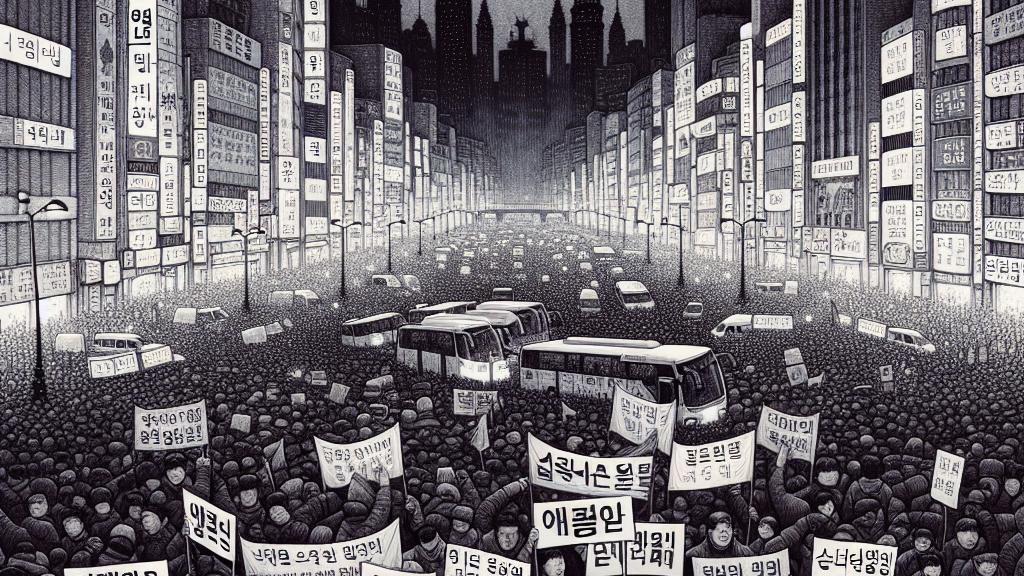Korea Lifts Martial Law in 150 Minutes, Says Ruling Party Leader
Overview
- In a surprising turn of events, President Yoon Suk-yeol's martial law was lifted within just 150 minutes.
- Ruling party leader Han Dong-hoon declared the law illegal, showcasing the power of legislative authority.
- This incident illustrates significant transformations in South Korea's political landscape, driven by citizen activism and emerging leadership.

The Context of the Martial Law
On the night of December 3, 2024, South Korea was engulfed in tension as President Yoon Suk-yeol unexpectedly declared martial law. This decision was ostensibly made to stabilize the nation amid escalating protests, where citizens expressed deep frustration over lack of transparency and accountability from the government. Thousands took to the streets, their voices echoing a collective fear of reverting to autocratic rule, reminiscent of South Korea's turbulent past. Pictures of demonstrators holding signs demanding their rights, alongside chilling reminders of previous regimes, painted a striking image of a society on edge. It was clear that the uncertainty surrounding this law would catalyze further public dissent rather than quell it.
The Swift Reversal
However, within an astonishingly brief span of 150 minutes, the National Assembly convened and prompted a shocking turnaround. Led by Han Dong-hoon, the new head of the ruling party, legislators quickly gathered to challenge the martial law's legitimacy. Heated debates flourished, and in a remarkable display of unity, every assembly member voted to repeal the law. Han enthusiastically announced, "With our resolution, this unlawful declaration of martial law has lost all effect!" This moment not only showcased the quick reflexes of South Korea's legislative body but also reinforced the principle that democracy thrives when citizens and their representatives bravely stand against overreach from any authority. The swift response invigorated the populace and captured a vital lesson: active engagement in governance can indeed reshape the political landscape.
Political Implications and Future Outlook
The repercussions of lifting martial law extend beyond just an immediate political victory; they signal a pivotal moment for South Korea's democratic evolution. Citizens, now emboldened, recognized their collective power to demand greater accountability from those in power. The ascendance of figures like Han Dong-hoon, who embodies a younger generation eager for change, illustrates a shifting paradigm in political engagement. As more citizens connect through social media and traditional forums alike, the dialogue surrounding politics becomes increasingly vibrant and inclusive. Thus, this event serves as an inspiring reminder that a democratic society flourishes when its people remain vigilant, proactive, and willing to voice their concerns. In this spirit, advocates for democracy in South Korea can anticipate a future where public opinion significantly influences governance, crafting a more robust, participatory political environment.

Loading...